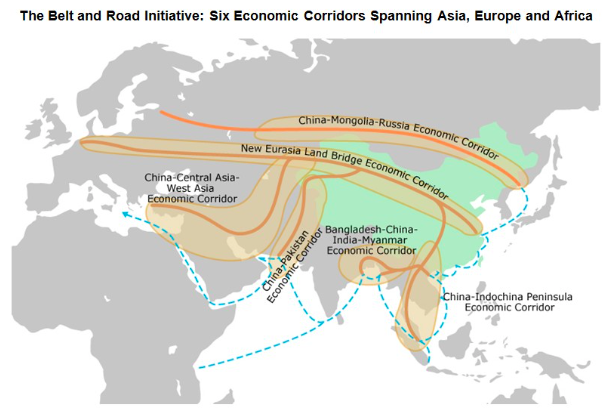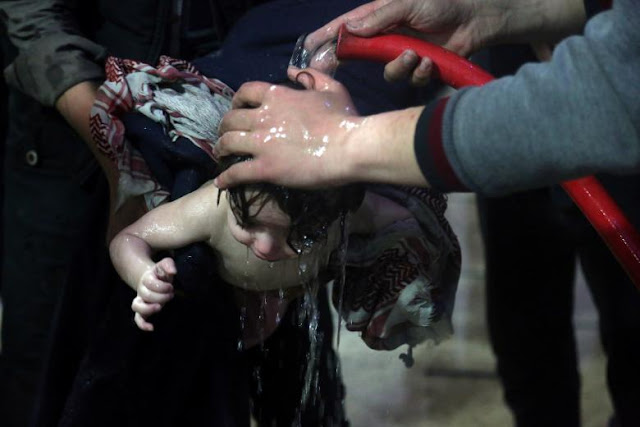4th week, April 2018.
This Week in War: A Friday round-up of what happened and what’s been written in the world of war and military/security affairs this week.
It’s a mix of news reports, policy briefs, blog posts, and long-form journalism.
- UN panel says the U.S. owes reparations to African-Americans.
- Over 3,000 indigenous people arrive in Brasilia, Brazil to denounce what activists say is an unprecedented rollback of indigenous rights.
- Chinese scientists have concluded that North Korea's nuclear test site has partially collapsed, potentially rendering it unusable.
- Search requests for missing Syrians soar, says Red Cross.
- An estimated 60% of Syria’s Yarmouk refugee camp for Palestinians destroyed amid violence.
- The Colombian government is now struggling to impose order as other armed groups seize FARC rackets and territory.
- Venezuelan schools emptying as Chavez's legacy, free education, is under threat.
- Israeli police officer jailed for 9 months over the 2014 murder of Palestinian teenager who posed no threat.
- Malaria keeps Africa donor-reliant.
- Kim Jong-un crosses into South Korea for the first time on Friday for a historic meeting with Moon Jae-in.
- French President Emmanuel Macron has used his speech to the US Congress to denounce nationalism and isolationism.
- U.S. team in refugee camps investigating atrocities against Rohingya.
- A mummy discovered near the Iranian capital "most probably" belongs to the father of the last Shah of Iran, his family has said.
- UN warns Idlib could be the next Syrian disaster zone in 'marathon of pain’.
- The gunman in the Waffle House shooting near Nashville, Tennessee, left 4 people dead. The gunman would have been able to be walk free after posting the $2M bail, but bail was removed after massive outcry.
- 6 US states and Puerto Rico have launched a gun violence research group, bypassing Congress.
- The terrorist who mowed down pedestrians in Toronto has been charged with 10 counts of murder as his disturbing posts emerge.
- Palestinian launches hunger strike in Palestinian Authority jail. Ahmad al-Awartani may face torture following his arrest for his criticism of the Palestinian government.
- Russia says thwarts planned Islamic State attacks in Moscow.
- Russian civilians helping Assad use military base back home. This provides rare evidence of a covert Russian mission in Syria beyond the air strikes, training of Syrian forces and small numbers of special forces troops acknowledged by Moscow.
- A Turkish court has sentenced 13 journalists to prison on terrorism charges, in a case that has sparked global outrage over press freedom.
- Central American 'migrant caravan' reaches US-Mexico border.
- French President Emmanuel Macron has said he may have failed in efforts to persuade Donald Trump to stick to an international nuclear deal with Iran.
- Michael Cohen, the president's longtime personal lawyer, told the court he will take the Fifth Amendment in Stormy Daniels lawsuit.
- At least 7 students have been stabbed to death and 12 injured in a knife attack outside a school in northern China. A suspect is in police custody.
- Cuts to education budgets strain schools, teachers protest in Arizona and Colorado, USA.
- Israeli soldiers fired bullets and tear gas at thousands of Palestinian protesters at the Gaza-Israel border, wounding 200 people.








